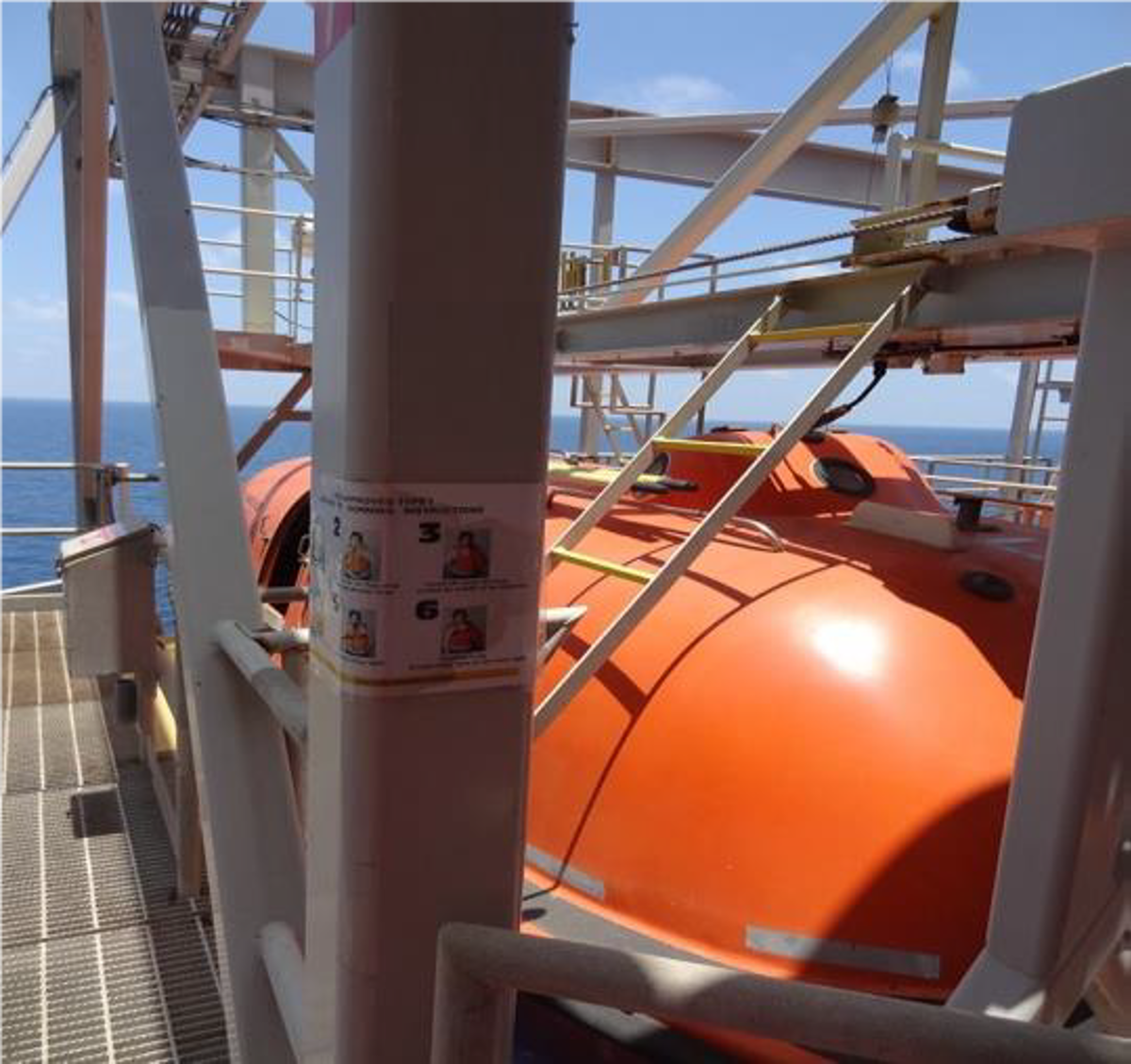Routine test of lifeboat launch results in fatalities
- Safety Flash
- Published on 4 September 2019
- Generated on 18 July 2025
- IMCA SF 21/19
- 1 minute read
Jump to:
On the Auger platform in the Gulf of Mexico during routine testing, a lifeboat fell into the sea with two persons on board. Both were fatally injured.
What happened?
The incident occurred during a routine and mandatory test of a lifeboat launch and retrieval capabilities. It included testing of the centrally operated release mechanism, which detaches the lifeboat from the lifting mechanism. On completion of the test, the lifeboat was being recovered to its launching davits.
On reaching a height above the water of approximately 25-30 metres, the lifeboat support point released causing the lifeboat to swing in a pendulum fashion. The forward support point then separated, and the lifeboat fell to the sea.
This incident is still being investigated and any findings must necessarily wait upon that investigation.

Recommendations
Members may wish to:
- Suspend all testing involving launching and recovery of lifeboats where the lifeboat is manned.
- Suspend all maintenance and training requiring a person or persons to be inside lifeboats, unless the lifeboat is thoroughly and comprehensively secured in the davits by launch prevention devices.
Featured Safety Flashes
-
IMCA SF 21/18
17 September 2018
-
-
IMCA SF 12/12
14 November 2012
-
IMCA SF 10/11
16 September 2011
-
IMCA SF 04/10
14 July 2010
IMCA Safety Flashes summarise key safety matters and incidents, allowing lessons to be more easily learnt for the benefit of the entire offshore industry.
The effectiveness of the IMCA Safety Flash system depends on the industry sharing information and so avoiding repeat incidents. Incidents are classified according to IOGP's Life Saving Rules.
All information is anonymised or sanitised, as appropriate, and warnings for graphic content included where possible.
IMCA makes every effort to ensure both the accuracy and reliability of the information shared, but is not be liable for any guidance and/or recommendation and/or statement herein contained.
The information contained in this document does not fulfil or replace any individual's or Member's legal, regulatory or other duties or obligations in respect of their operations. Individuals and Members remain solely responsible for the safe, lawful and proper conduct of their operations.
Share your safety incidents with IMCA online. Sign-up to receive Safety Flashes straight to your email.